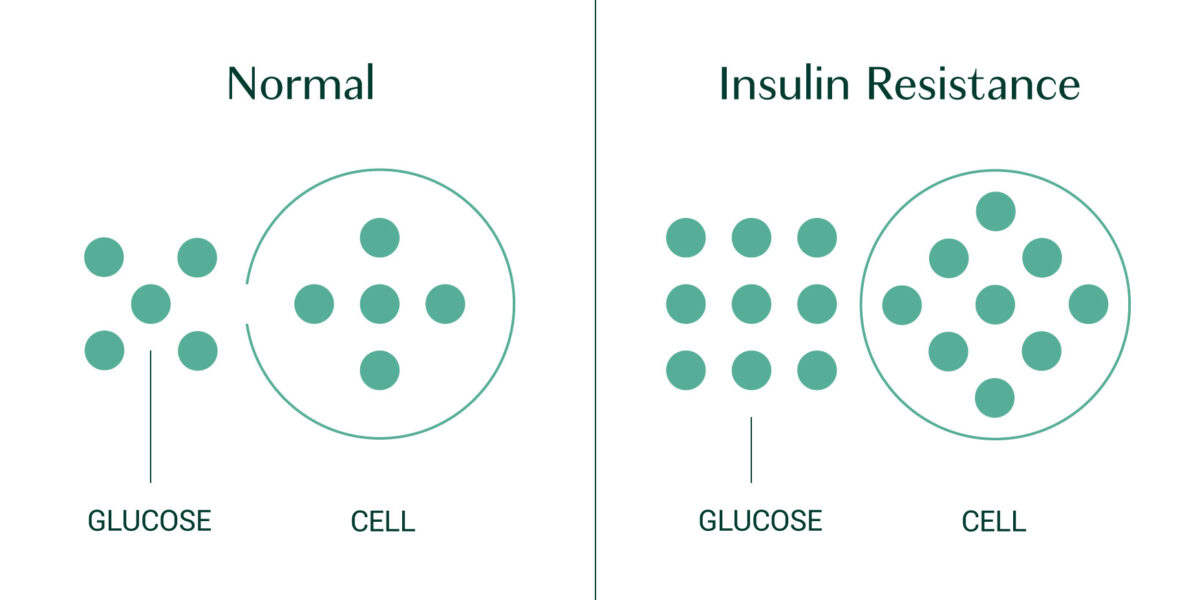Could vitamin D play a role in diabetes?
One thing that low vitamin D levels and diabetes have in common is that they’re both widely prevalent in the US.
According to the CDC (Centers for Disease Control), more than 37 million Americans have diabetes, about one in every ten adults. Meanwhile, it’s estimated that at least 24% of the US population is vitamin D deficient, with 6% being severely deficient[1][2].
Where do these two conditions intersect?
Studies show that people with type one and two diabetes are more likely to have low vitamin D[3].
In this article, we’ll explore the connection between these two conditions, how low vitamin D may play a role in diabetes, and the best ways to increase your vitamin D status.
What’s The Connection Between Vitamin D and Diabetes?
One of the hallmarks of type 2 diabetes is insulin resistance, a condition in which your cells are unable to respond to the signals from the hormone insulin. As blood sugar rises, it’s insulin’s job to usher glucose out of your circulation and into your cells to be used for fuel or stored for later. When you become insulin resistant, it sets the stage for high blood sugar and the onset of type 2 diabetes.

Okay, so where does vitamin D fit into the picture? Research shows a correlation between low vitamin D levels and insulin resistance.
For example, several studies show that people with type 2 diabetes tend to have significantly lower vitamin D concentrations than healthy people. On the other hand, when people with impaired glucose tolerance supplement with vitamin D, it seems to improve insulin sensitivity[4][5][6].
In other words, vitamin D plays a role in keeping your cells sensitive to insulin.
Although the exact role that vitamin D plays in enhancing insulin sensitivity is yet to be determined, one hypothesis is that vitamin D may upregulate genes responsible for insulin receptors in your cells[7].
Another hypothesis is vitamin D’s relationship with calcium could affect insulin signaling. Vitamin D is an essential factor in calcium homeostasis, and as it turns out, calcium plays a crucial role in insulin release. Specifically, calcium ions are responsible for stimulating the release of insulin from the beta cells in your pancreas[8].
When vitamin D is low, it inhibits the flux of extracellular calcium needed for insulin release and, therefore, may directly impact blood sugar control.
What About Type 1 Diabetes?
While insulin resistance is a hallmark of type two diabetes, people with type 1 diabetes tend to struggle with insulin production. In other words, they don’t release enough insulin to match the incoming glucose.

Type 1 diabetes (T1D) is thought to be caused by autoimmunity, where the body attacks its own cells. And in the case of T1D, the target is the beta cells in the pancreas responsible for releasing insulin.
Interestingly, vitamin D may also play a role here.
Observational studies show an increased risk for type 1 diabetes in northern regions where a low vitamin D risk is higher, and sunlight is more scarce[9].
Furthermore, in a study out of northern Finland, children taking vitamin D supplements were 80% less likely to develop type 1 diabetes than those who did not supplement with vitamin D[10].
Although researchers have yet to grasp a firm understanding of how vitamin D impacts type 1 diabetes, it’s suggested that vitamin D’s role in immunity, particularly inflammation, is likely a contributing factor[11].
Can Vitamin D Prevent Type 2 Diabetes?
Studies show that despite the strong evidence that raising vitamin D can reduce the risk of diabetes, we still don’t have enough data to definitively say that vitamin D can prevent the onset of type 2 diabetes[12].
Simply put, it’s hard to decipher the cause-and-effect association between vitamin D and diabetes since most studies only show a correlation, as opposed to a precise mechanism by which vitamin D can prevent the onset of diabetes.
Furthermore, diabetes is a complex condition that likely has several root causes, which means that ensuring adequate vitamin D status would only take care of part of the issue.
That said, research suggests that in some cases, vitamin D supplementation may reduce the risk of prediabetes progressing into type 2 diabetes[13].
The bottom line? If you’re pre-diabetic or concerned about diabetes, making sure your vitamin D levels are in a healthy range should be a priority.
How To Achieve Optimal Vitamin D Status

According to The Endocrine Society, adults should aim to get around 1500 to 2000 IU of vitamin D each day – with older folks trending towards the higher end[14].
While sunlight is the most effective way to enhance vitamin D levels naturally, most people either live in areas where sun exposure is sub-optimal, or they work indoors and simply can’t get outside long enough each day.
This is why most health authorities today recommend taking a vitamin D supplement to ensure sufficient vitamin D levels. With a high-quality supplement you’ll have a fail-safe against low vitamin D.
Takeaway
While vitamin D may not be the end-all-be-all cure for diabetes, there is evidence to suggest that having healthy levels of vitamin D plays an important role in reducing your risk of diabetes.
And, of course, aside from its potential role in diabetes, ensuring that your vitamin D levels are in a healthy range is crucial for strong bones, immunity, nutrient metabolism, and more. Therefore, if you haven’t already checked your vitamin D levels lately, there’s no time like the present.
Sign up for the AlgaeCal Newsletter for more information regarding health, longevity, and aging gracefully.
FAQs
Is vitamin D good for diabetics?
Vitamin D may enhance insulin sensitivity and help to promote insulin release from pancreatic cells; therefore, ensuring you are vitamin D-replete is important for people with diabetes.
How much vitamin D should a person with diabetes take each day?
To attain adequate levels of vitamin D, The Endocrine Society recommends that adults should aim to get around 1500 to 2000 IU of vitamin D each day.
Can vitamin D raise blood sugar levels?
Taking vitamin D shouldn’t directly impact your blood sugar levels. However, it may help to increase your body’s sensitivity to insulin, which helps to regulate blood sugar levels.
Does vitamin D help with insulin levels?
Studies show that taking vitamin D may increase beta cell function, enhancing insulin release.





Sandra Bowens
January 30, 2024 , 12:00 pmcan you get to much Svitamin in your body, and what does it do to your body